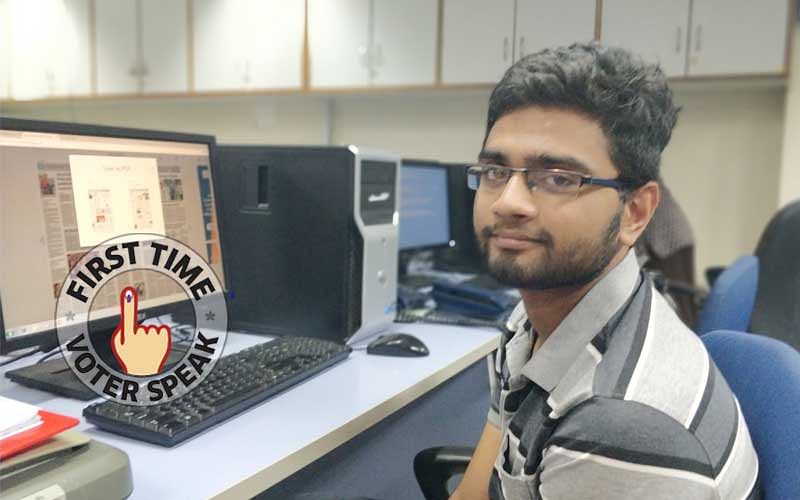
Turning 18 has its own set of privileges. There's just something about the number that screams responsibility and maturity. And yet, 'opportunity' was the one word I chose to describe adulthood. Opportunity to express my views, opportunity to make decisions – and a less glamorous opportunity, that of choosing my representatives.
Most people I know seem to have this singular notion about politics or voting: They are convinced their vote has no significance. And yet, I was more than excited to vote. Maybe it was just the idea of actually having an impact on active politics, despite the puny scale of it. Or maybe it was the thought that demanding one's rights was justified only when one exercised one’s duty. Either way, the opportunity was staring me in my face and I wasn't going to let it slip by.
However, the larger question was still looming in the air. Whom do I vote for, and more importantly, how do I make that decision? Do I listen to my relatives and friends or do I make the choice for myself. I chose to follow the latter and despite belonging to a largely pro-Bharatiya Janata Party (BJP) family, decided that my decision would be based on my understanding of the political situation, and not what my parents believed in.
Being a responsible citizen involves making informed and rational decisions. It is important that a person remains true to what he/she believes in. Most people look at the national narrative. They vote because they can't envision an India where Rahul Gandhi is the prime minister, or because they are agitated with BJP’s communal politics, or because of a hundred different reasons none of which would personally impact them or their constituency. I felt that the plight of Bangalore Rural will be determined by the MP from Bangalore Rural and not by Narendra Modi or Rahul Gandhi.
Expecting a local candidate to have a manifesto is laughable, but one could surely hope that the national manifesto would at least provide a rough idea about what the parties hope to do in the coming term. And glancing through the manifestos helped me understand what national political parties really think the country needs, and I don’t mean that in a good way.
The only solace that I obtained while going through the emotions of voting for the first time was the knowledge that I wasn't alone in my pursuit of looking for a suitable candidate. A few friends also seemed to believe in the idea. While we may have differing opinions on whom to vote for, a common belief that we all shared was the need for a comprehensive understanding of the candidates in our constituencies before actually voting.
I think we have reached a point were our representatives will be determined based on the number of criminal charges pending against them. At least, that's what it seemed like when I was trying to gain an understanding of the candidates from my constituency. On the one hand was DK Suresh, brother of DK Shivkumar, and a two-time MP from Bangalore Rural. With five pending criminal charges and assets worth 338 crore, most of which was accumulated in the last five years, DK Suresh did not seem like someone I could back.
On the other hand was Aswathnarayana Gowda, who seemed rather eager to ride on the Narendra Modi bandwagon, given his own lack of original ideas. And yes, he had a couple of criminal charges pending against him as well. Lesser than his Congress counterpart, but still worth mentioning. Following this was a candidate from the Bahujan Samaj Party about whom there was literally no information available and Independents, none of whom were popular enough to win the seat. Interestingly enough, there was a candidate from the 'Pyramid party of India' whose symbol was a 'pineapple'!
Completely disgusted with the candidate list, I decided that the least I could do is be true to myself and make a decision that I know I won't regret. And that's when I decided to go with NOTA. I am not naive. I understand that NOTA has little to no significance in the grander scheme of things, but I'd much rather go with NOTA as a dutiful citizen, than one who either didn't vote or who voted for a party because they didn't know any better.
In the unlikely event that a constituency registers majority NOTA votes, the least it does send a message regarding the dissatisfaction among the people. And I'd much rather live under the delusion that such an occurrence is a possibility, rather than voting for someone by disregarding everything I believe in.
(Harish Sridharan is an aspiring journalist and currently an intern at Deccan Herald)